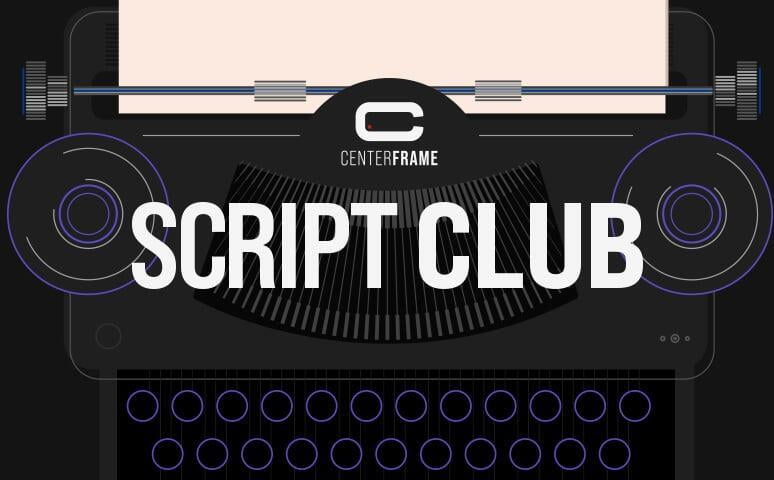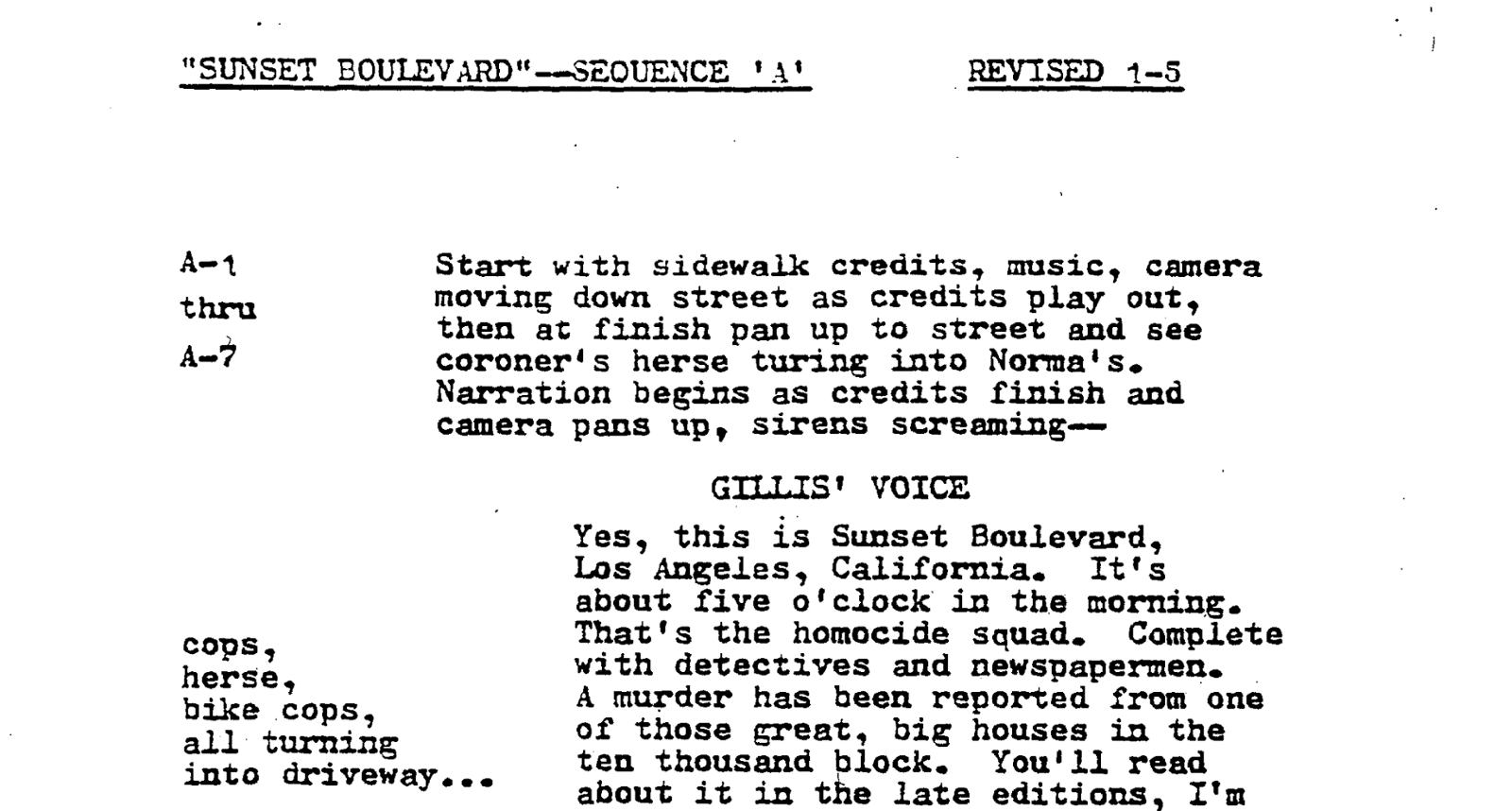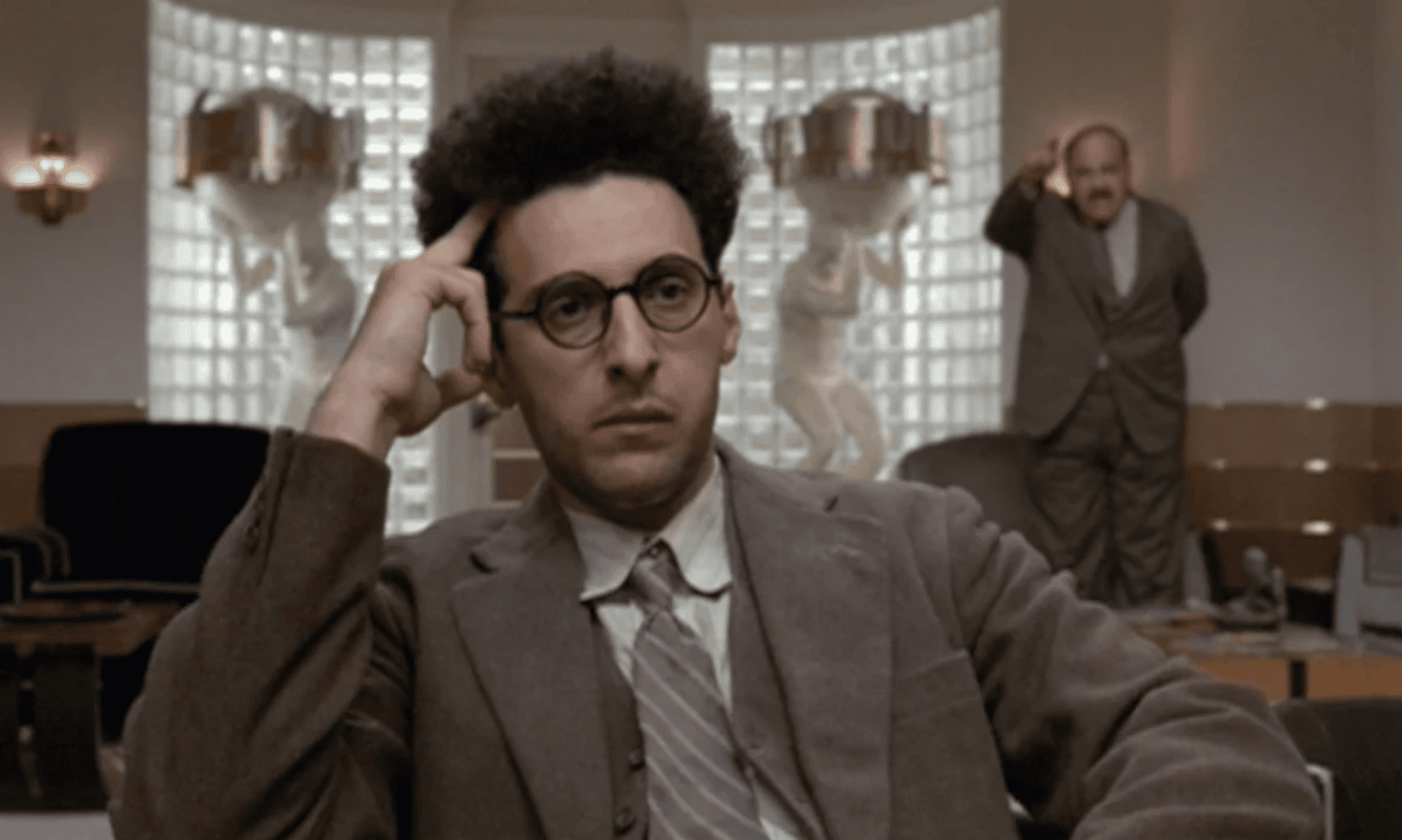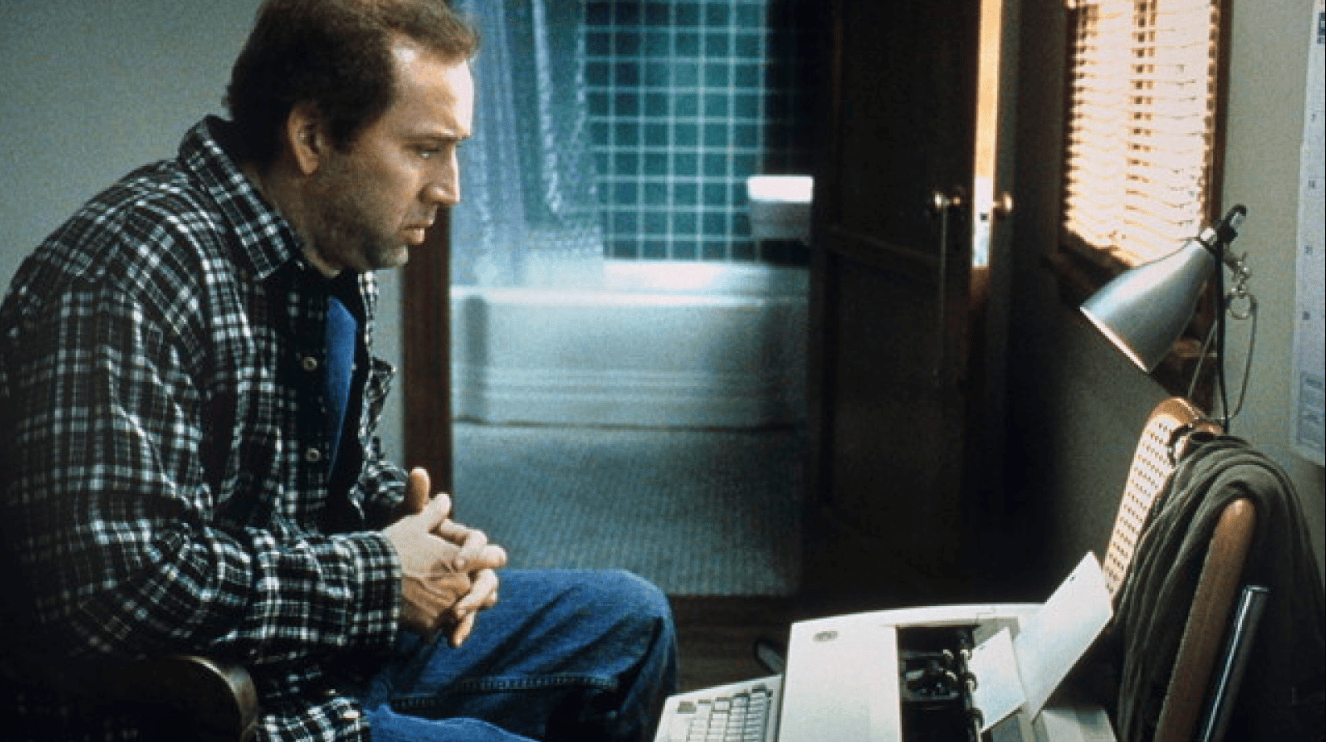
WHY START
SCRIPT CLUB?

LUKE FOSTER
CenterFrame Team
When I first learnt to write screenplays, there was one piece of advice I constantly heard: “read produced scripts”.
I’d previously learnt guitar by attempting to play well-known songs, riffs and solos. So it made sense to me that you could study the craft of screenwriting by looking at the way established writers revealed characters, described action, handled dialogue and conveyed themes and exposition.
I didn’t have to particularly push myself to do this. I can’t remember what the first script I read was—it might have been American Beauty — but I enjoyed reading and analysing scripts from the get go: scribbling illegible notes in the margins about evocative pieces of description I liked, or clever ways a character’s thoughts and feelings had been revealed, or surprising twists in the story I admired.
I can honestly say I’ve often enjoyed reading screenplays more than I’ve enjoyed watching movies. This is slightly embarrassing to admit, but I even started my own tradition of beginning the screenplay for a particularly favourite movie on my birthday. It began when I read the script for Almost Famous and I’ve have been doing it as a yearly tradition ever since, reading the screenplays for everything from Whiplash and Before Sunset to North by Northwest and Sunset Boulevard.

Sunset Boulevard - March 21st, 1949
Getting hold of scripts to read wasn’t always as easy as it is now, though. When I started out, websites offering free PDFs of produced screenplays didn’t exist. I used to have to buy tiny, Faber and Faber script books, for films such as The Usual Suspects, Chinatown and Amores Perros, from Foyles in London, or huge compendiums of Buffy The Vampire Slayer scripts from Forbidden Planet.
After seeing an advert in Creative Screenwriting magazine, I also used to order scripts via mail order from a company in Los Angeles. This enabled me to get my hands on the pilot scripts for TV shows like Ally McBeal. The O.C. and Dawson’s Creek and for film scripts such as Mean Girls and Thirteen. The scripts would arrive several weeks after I ordered them, in envelopes with an L.A., postmark that made them seem faintly glamorous.
This all changed when I discovered Drew’s Script-o-Rama: an online treasure trove of produced screenplays, all available to download for free. I suddenly was able to not only find and read screenplays for many of my favourite films, but to read scripts that were useful references for projects I was working on.
When working on a story about dreams, I once even read the scripts for all seven original Nightmare On Elm Street films. The script for Freddy vs Jason sadly wasn’t available.
The practice of reading produced scripts is so actively encouraged and prevalent amongst screenwriters that I’m sure lots of writers enjoy doing a deep dive, ”under the hood” look at scripts as much as I do. So I always thought it would be both enjoyable and instructive to do this with others. And if book lovers can have book clubs, why can’t screenwriters have script clubs?
The idea for Script Club is simply to bring together screenwriters once a month to discuss and dissect a produced screenplay chosen by one of the group.
The emphasis will be on highlighting positive aspects of the writing: from good storytelling and character choices to compelling lines of description, effective pieces of dialogue and recurring symbols or motifs.
The aim is to have writers with a wide range of experience taking part: from established writers with produced credits, to those with projects in development, to those just starting to make their way in the industry.
The meetings will be held on online and any writers within the CenterFrame community who want to get involved will be able to take part and suggest scripts to discuss, which is one of the things I’m most intrigued about.
Going back to my original guitar-playing analogy, when you’re choosing songs to learn, there can be a tendency to only pick tracks from bands and guitarists you already know and like, when you might learn something new by picking a more unfamiliar piece.
The same can be true of only reading scripts for favourite films and TV shows. So I’m looking forward to finding out which scripts writers choose to discuss, as they might select scripts I hadn’t considered reading before, or that are for films I haven’t seen or even know much about.
I’m also looking forward to hearing other writers’ observations and insights into the scripts, and I hope others will find the monthly discussions equally enjoyable and insightful.
You can find out more about Script Club here.

LUKE FOSTER
Development Executive | CenterFrame Team
Luke Foster is a screenwriter and Development Executive for Iron Box Films. He wrote the horror comedy Ravers, which premiered at FrightFest 2018 and was released in 2020, including theatrically in North America. He also wrote the comedy drama Betsy & Leonard, for which he won Best Original Screenplay at the Madrid International Film Festival in 2013. Luke hosts the monthly CenterFrame Script Club and has a video essay series on horror filmmaking, Alive In The Morning.
Related articles

You can edit text on your website by double clicking ely, when you select a text box
You can edit text on your website by double clicking ely, when you select a text box

You can edit text on your website by double clicking ely, when you select a text box
You can edit text on your website by double clicking ely, when you select a text box

You can edit text on your website by double clicking ely, when you select a text box
You can edit text on your website by double clicking ely, when you select a text box






